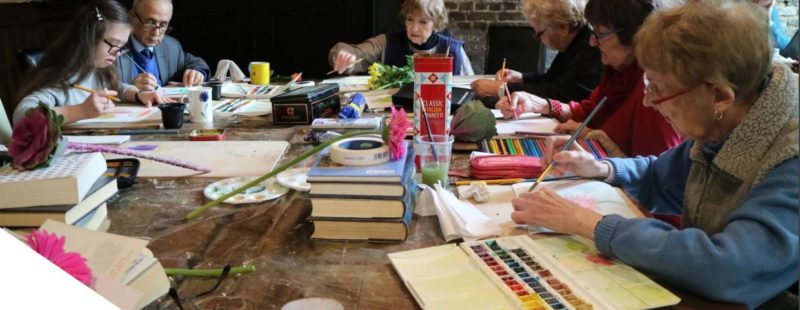Annabel Collins, Programme Manager at Ageing Better in Camden and Rob Francis, Associate Director at Traverse have kindly shared an evaluation of the Ageing Better in Camden programme which is focused on tackling loneliness and isolation amongst the borough’s older population.
Staying connected during Covid-19
At the beginning of 2020, 64-year-old Shama was a regular at her local community centre, taking part in activities like cooking classes and day trips with a Bangladeshi women’s project. Staff at the centre also helped her with things like booking health appointments. When COVID-19 hit, Shama found it difficult to stay connected. The project’s leaders taught her how to use WhatsApp, which became a lifeline. She and her friends now use voice notes to chat, record songs to entertain each other, and even speak much more frequently than they did before lockdown. Shama has also started to use WhatsApp to organise and receive information about her health care – sending health related photos or prescriptions to project leaders, they could continue to support her in getting the medical help she needed.
A partnership of older people coordinated by Age UK Camden
This community project is one of almost thirty which, since 2015, have been part of the Ageing Better in Camden (ABC) programme. Supported by the National Lottery Community Fund and run by a partnership of older people coordinated by Age UK Camden, it is focused on tackling loneliness and isolation amongst the borough’s older people.
An evaluation of the programme, conducted by independent researchers at Traverse, has looked at how these community projects helped to foster a sense of belonging for participants. Traverse’s report, published recently, identifies how three ‘pillars of belonging’ – place, people and activity – have come together to make such a positive impact in the Camden projects.
The final year of the programme coincided with the pandemic, however, and projects which had done so much to tackle isolation suddenly faced the prospect of all their good work unravelling. Literally overnight, those three pillars of place, people and activity were thoroughly shaken – places were shut, people couldn’t meet up and activities were halted. Project leaders had to suddenly find ways to support their members and service users without the benefit of a familiar, physical space which people often described as feeling like a ‘second home’.
So what did they do? Like schools and many workplaces, they migrated what they could online, running activities and classes over Zoom. One participant said “It was lovely to still do exercise with a group…When I’m on my own, I don’t want to do it, I just put it off… with the group it was different… I wouldn’t have done any exercise if it wasn’t for the group.”
Providing older people with a connection to their community
But what about those older people not ready for the shift to digital? Whilst online meet-ups and e-newsletters reached many, project leaders knew they wouldn’t reach all. Most quickly established routines whereby they rang their participants on a weekly basis, prioritising people who lived alone. “It helped me to still feel part of something,” one project participant reported, “[that I] wasn’t on my own, and that there was someone there thinking of you.” Some project staff and volunteers helped people like Shama to get better connected, learning to use IT equipment more confidently or to use WhatsApp, which in turn encouraged another important element of these projects as they helped their members over lockdown: peer support.
Some projects proactively organised peer networks that linked people to each other to enhance their social interaction. These groups took different forms across projects, but included creating groups of people to call each other, small WhatsApp discussion groups and conference sessions on Zoom where people could come and chat with each other on their own accord. In other cases, peer support was more organic, growing out of the social ties that had been forged between project participants face to face. The experience of the last 12 months has, therefore, shone a light on the value of the social networks established by ABC projects in more normal times. The projects continued to provide older people with a connection to their community – however imperfect – where they might otherwise have had none.
As older people’s projects look forward to meeting face to face once again, they may not simply return to pre-pandemic routines. Some older people have found it easier to get involved with project activities online than they did when they required getting to a physical place. Moreover, some projects have found it easier to keep in regular contact with their participants – especially important for helping them stay connected to projects when they’re ill or increasingly frail. It therefore seems likely that the older people’s projects of the future will seek to blend real world and virtual elements, and that work to get everyone online will be more important than ever.




No comments on this article yet. Please feel free to submit a comment below.
By submitting a comment you grant Campaign to End Loneliness a perpetual license to reproduce your words and name/web site in attribution. Inappropriate and irrelevant comments will be removed at an admin's discretion. Your email is used for verification purposes only, it will never be shared.